Photographs: Sahim Salim/Rediff.com Sahim Salim in New Delhi
Beaten down and drained of all hope.
That is the story of these young men and women. For these innocently framed victims, to actually stand on the podium and recount their experiences itself is traumatising.
Many of them broke down while talking about the horrors they encountered. They are so disillusioned that they have concluded that they committed two crimes one they were born Muslims and two that they are young.
They have lost faith in the government and its institutions. They curse the police, the intelligence agencies and even the judiciary and media for their state. They have lost their jobs, have affected the livelihoods of their relatives and have married sisters dumped back home because of their supposed "terror links."
These victims are among the many innocent young Muslims or their relatives arrested for terror links in several of the blasts and riots that occurred in India, which investigators are now finding to be the handiworks of Hindutva groups.
They were speaking at a national meet organized by some NGOs headed by ANHAD. They are among the contributors of a book entitled What it means to be a Muslim in India today that was released at the national meet on Thursday. Post the session, Rediff.com's Sahim Salim caught up with these men and women and spoke to them.
Click on NEXT to read about their experiences...
He is still called 'Bomb blasts Raisuddin'
Image: Mohammed RaisuddinMohammed Raisuddin
It has been almost three years since a local court acquitted Raisuddin for lack of evidence of his role in the Mecca Masjid blast in Hyderabad. He is still called "Bomb blasts Raisuddin."
He spaces out in between sentences and sometimes can barely speak whole sentences. He has not forgotten the trauma he underwent for eight long months.
"We were kept in isolation. The investigators told me that all the other boys they picked up were dead. They subjected me to gunshots near my feet when I was taken outside blindfolded. Each step I took, I felt it was the last. Can you imagine your ears and mouth burnt? That is what electric shocks do to you. I can still smell burnt meat, which was my own," Raisuddin says as he breaks down.
It is still a nightmare for him and his widowed mother. The police keep going to their house if anything goes wrong.
"It is like I am responsible for any crime that takes place in Hyderabad. A man gets shot, police come to my place. Someone is robbed, police come and say, 'Saahab bula rahe hain.' (the boss has called you) It will never stop," Rahim says.
'They applied electric shocks on my ears and mouth'
Image: Abdul RahimAbdul Rahim
He used to drive an autorickshaw in Hyderabad and today, even after the court has acquitted him, he can't find a steady job.
"It is because of my tag," he says, simply.
So tragic is Rahim's story that he says he can't cry anymore.
"Everything I believed to be 'hell' happened. Both my brothers lost their jobs because of me. My married sister sits at home because her in-laws did not want ties with a terror-accused's family," Rahim says.
Rahim was picked up in September 2007 for his alleged involvement in the Mecca Masjid blasts. He was kept in jail for nine months before he was acquitted by the court for lack of evidence.
"The tortures are unspeakable. They used to make me lie down with my hands tied behind my back and hit me on my foot soles with a belt. They repeatedly pulled at my beard, pulling out chunks of hair in the process. The worst were the electric shocks. They applied shocks on my ears and mouth. It used to burn. Since my mother was a heart patient, I met her with my face covered with a handkerchief because I did not want to give her a shock," Rahim says.
Today, Rahim works as a labourer. "Nobody wants to give me a steady job," he says.
'My husband is a pious Muslim'
Image: Salma Bi with her sisterPhotographs: Sahim Salim/Rediff.com
Salma Bi
She is an illiterate who does not even know her own age. As she speaks of her husband, who has been jailed for the 2006 Malegaon blasts, you can see tears streaming from her eyes through the slit of her naqab (burkha).
Her husband, Mohammed Zahid Ansari, who is an Imam (head priest) at a local mosque in her tiny village called Phoolsavangi, was arrested for the 2006 Malegaon blasts and is still in jail.
"I had been married to him only for six months when they arrested him. I tried telling them that he was leading the Friday prayers when the Malegaon blasts happened, but they did not listen to me," Salma Bi says.
Phoolsavangi's residents had even submitted an affidavit stating that he was leading the Friday prayers in the village, which is 600 kilometers away from Malegaon when the blast occurred.
"He is a pious Muslim and led prayers all five times in the Mosque. How can he be responsible for the murder of so many Muslims? After all that blast did kill 31 Muslims," Salma Bi says.
"My husband does not have legal representation. Government lawyers won't touch his case and private lawyers are scared " thus saying, she breaks down and signals her sister to come get her.
'Allah will help me bring back my sons'
Image: Khatoon BibiKhatoon Bibi
By next month, Khatoon Bibi, this wrinkled widow from a slum in Godhra, will have waited nine strenuous years for the release of her three sons.
This elderly woman, who lost her husband five years ago, still hopes to see her sons released. They were arrested for setting a compartment of a train in Godhra Railway Station and they have not been released yet even after the high court and Supreme Court said there was no evidence of a terrorist plot in the burning of the train.
"Nine years ago, some policemen came to our jhuggi and picked up my three sons. When I pleaded with them, they told me, 'don't worry, we are just taking them to bada sahib (sic).' That bada sahib has still not come," Bibi says.
Bibi breaks down as she recalls the night her husband died five years ago.
"He had cancer of the throat. I ran everywhere so that my sons could come at his burial. Forget burial, they are yet to see their own father's grave," Bibi says.
"Even today, my sons Shamsher, Sultan and Sadiq tell me about the torture. My sons have become weak. You should have seen them before they were arrested. They were my pride and joy. All three are just skeletons now," Bibi says.
Shamsher, the eldest son has two school-going children and a wife, while Sultan has a baby girl and his wife. With no male member left in the family, the mother and her two daughters-in-law bring home the meager money they earn from domestic chores.
"I have been a widow for the past five years. It is Allah's blessings that I still take care of my two daughters-in-law and three grand children. The same Allah will help me bring back my sons," Bibi says.

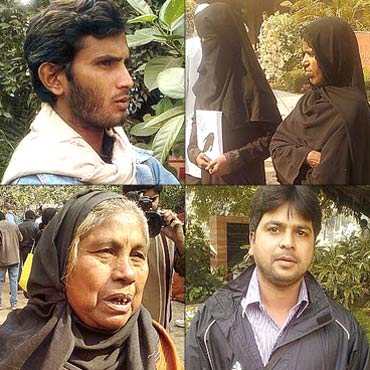
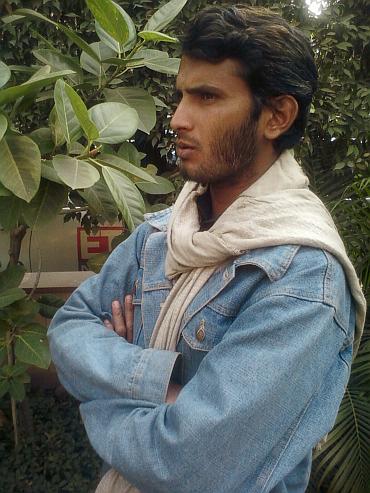
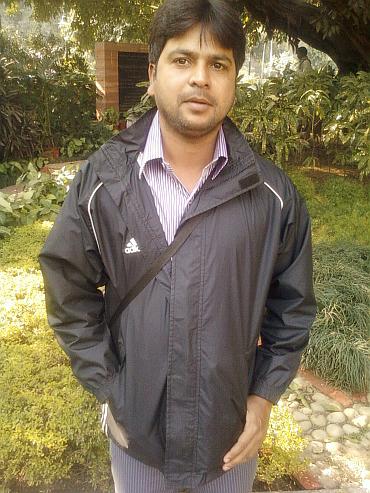
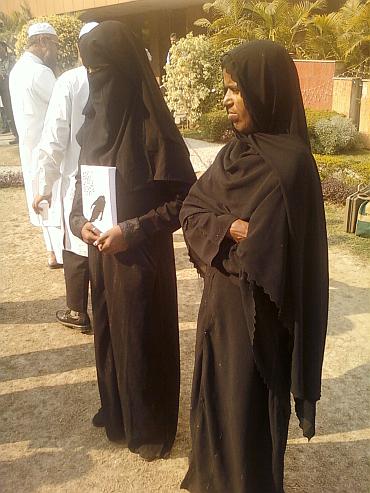
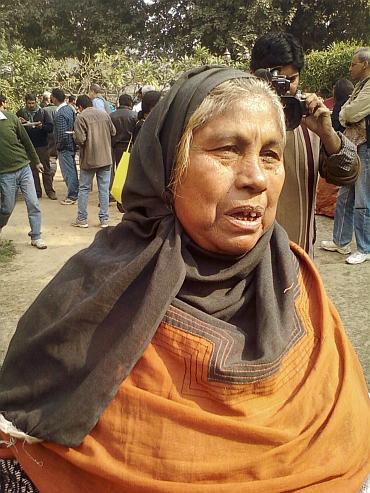
article